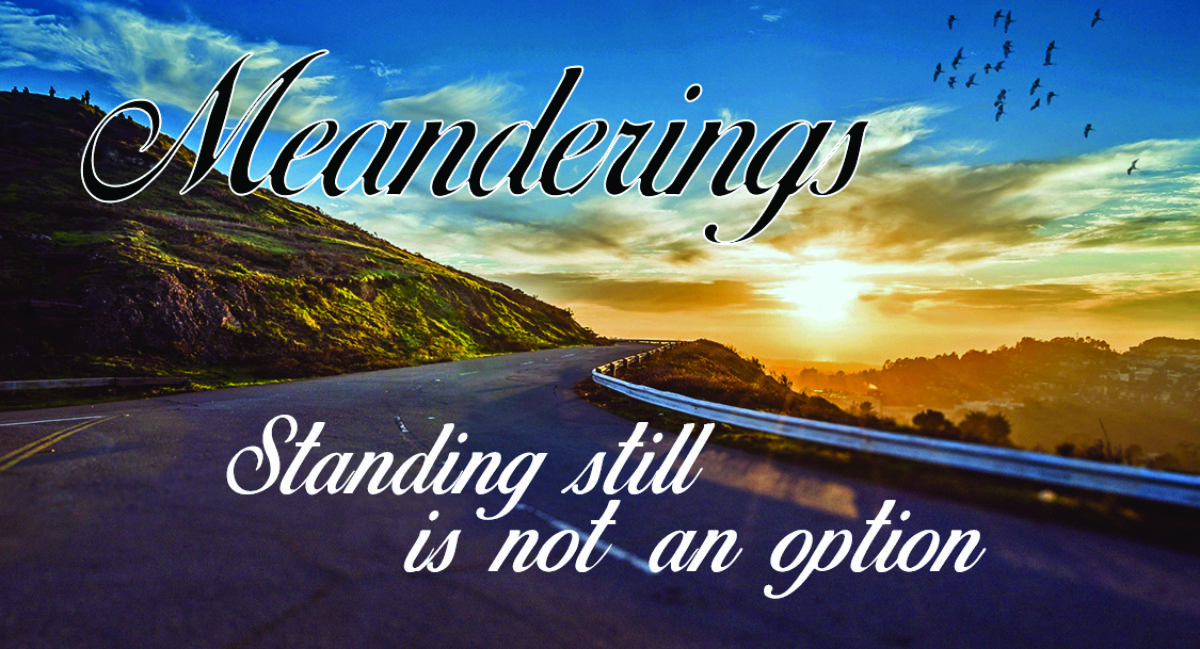When Ross Weber came on board he was a hirsute, grizzled, denim clad man who seemed rather diffident and cautious in his approach to people. Soon the whispers and rumours began. Our floating village was abuzz.
“Did you hear that the lanky, grizzled man is a multi-millionaire?”
“I heard he owned an island that he sold for $32 million.”
“He has never worked in his life.”
“He was a hermit and is just coming out into society.”
It was like a game of Gossip. In fact that $32 million had grown from $7 million in about three days. I was fortunate to be among those who got the truth from Ross himself.
I had not paid much attention to Ross except for the usual pleasantries in passing. Then one night he asked a friend about my origins and she invited him to join our group which met to talk out on deck or in a cozy lounge almost every night. He came but still does not know much about me as we were too interested in his story. He opened up to us, speaking in brief sentences and then he said:
“I have two tapes. They are documentaries about my life. They have been shown in New Zealand and Australia on T.V. If you can arrange it you can see them.” We surmised he was either tired of talking or did not want to go into any details. He was very shy.
Our Cruise Director was most accommodating and set up a viewing for the next sea day. We told a few people and it was also announced through the ship’s public address system. We garnered quite a crowd.
So here is a synopsis of Ross’ story. Ross had a dream to own a farm. Farmland on the mainland was very expensive. At 27 years old he was able to buy his farm and a boat because his farm was the very picturesque Puangiangi Island off the coast of New Zealand’s South Island in the beautiful Marlborough Sounds. Most small islands resemble a cup turned down in a saucer, Puangiangi however, seems to undulate in the incredibly blue waters of the Sounds. Ross shared his island with his flock of 60 sheep and the local birds. The sheep provided meat, which he dried as he had no refrigeration and he grew vegetables. He also grew his own herbal teas and grapes from which he made wine. After 47 years he sold his island and was cruising around the world for a year. The interviewer tried to get him to divulge the selling price of his island but was not successful.
While viewing the tapes, my interest peaked when I noticed the number of books in Ross’ rustic home. The walls were lined with books. There were books in boxes and other reading material everywhere. Ross said he spent more than $1000. annually on books and magazines. Ross showed his watch which he had got with a magazine subscription. It had no wristband so he carried it in his pocket. He found no need to get another because: “It still works.”
As Ross fielded questions we learned more about him. He said he was never lonely; that loneliness was for those who had nothing to do. He said he worked hard and sometimes through the night caring for the sheep, battening down during bad weather, tending his crops and doing the myriad chores necessary for one man, living alone on an island.
Ross was adamant that you should not call him a hermit. That he was not. He had yachtsmen and deep sea fishermen visiting him to walk the trails on his island. A few became friends whose arrivals he anticipated each year.
“They brought me practical gifts and had tea with me. I had friends. I had books”.
His conversation was current with a broad view of the world. He did have television in the last few years and one room with electricity powered by solar power, but the books were what kept him informed. They were his constant companions.
He was asked about needing companionship. His response was that he met some very nice women but they had other interests, jobs, relatives and did not want to live on his island. He ended with: “I just didn’t find the right one. However, I could always find the right book.”
There were those on board who wondered how soon some unscrupulous person would try to separate Ross from his money. Those were the ones who did not sit with him and see those wise blue eyes look steadily into yours and see beyond the surface. When asked what would have happened to him in an emergency with a look of surprise he simply said: “You just take care or you die.” That was literally true as for the first 10 years he had no telephone.
The Meander: Among the many fascinating people we have met on our travels, Ross is one of the most interesting. He is living proof that you can live your dream. He attests to the fact that the best non-human inanimate companion is a book. As he so often affirmed: “I had my farm. I had my books. I lived alone but was never lonely.”
Note: A version of this post first appeared in the summer 2005 Access, a journal of the Ontario Library Association.
